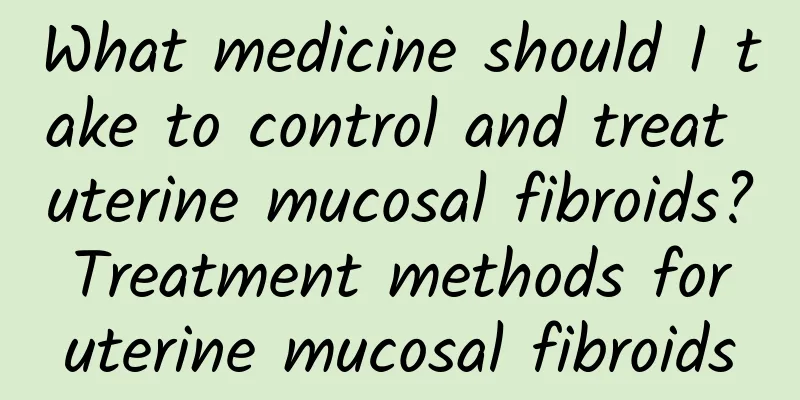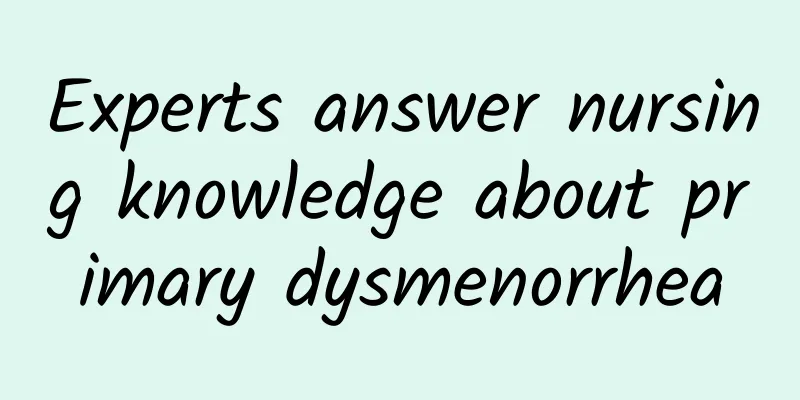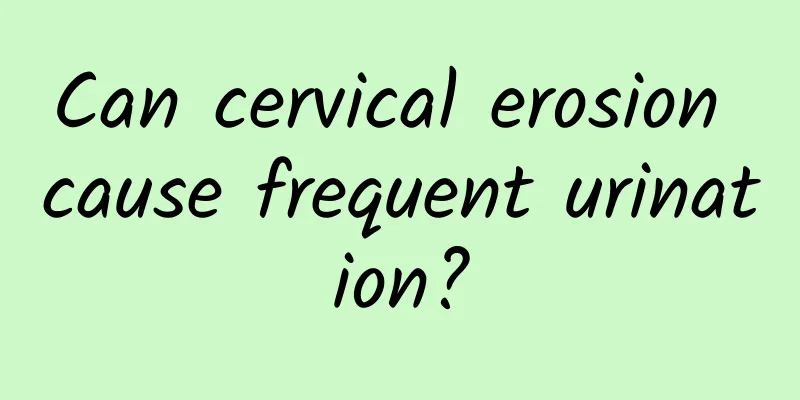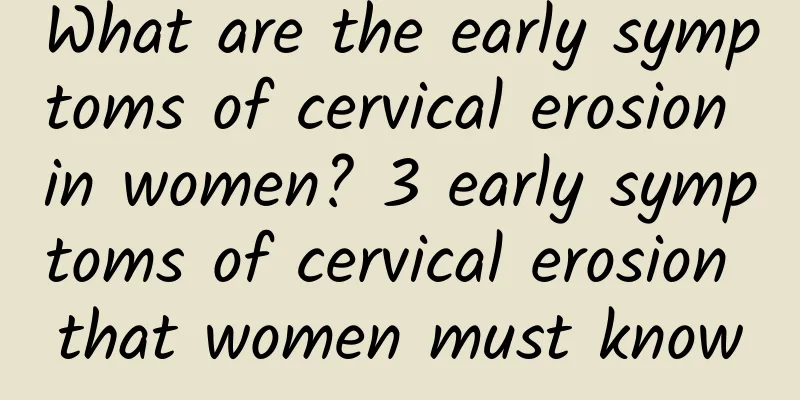What medicine should I take to control and treat uterine mucosal fibroids? Treatment methods for uterine mucosal fibroids

|
Uterine mucosal fibroids are a common gynecological disease that causes serious troubles for many women. So, how should we control and treat uterine mucosal fibroids? Next, let us learn about the treatment methods and optional drugs for uterine mucosal fibroids. Uterine mucosal fibroids are a type of tumor that occurs in the myometrium of the uterus. They are usually benign, but they may also become malignant. Once uterine mucosal fibroids occur, they need to be controlled and treated in a timely manner. In the process of treating uterine mucosal fibroids, we can choose some drugs to control and reduce the size of the fibroids. Below is an introduction to some drugs that can be used to control and treat uterine mucosal fibroids: 1. Menopause medication: Menopause drugs can reduce the growth of uterine mucosal fibroids by inhibiting ovarian function and lowering estrogen levels. Currently, there are many types of menopause drugs available on the market, such as desogestrel oral contraceptives, oral estradiol, acerein, etc. However, you need to be careful when using menopause drugs to treat uterine mucosal fibroids, because the effect of menopause drugs on the control of the disease varies from person to person, and menopause drugs cannot eradicate fibroids, but can only reduce their size. 2. Traditional Chinese medicine treatment: Traditional Chinese medicine treatment is a relatively traditional treatment method, which has a certain effect on some mild uterine mucosal fibroids. Commonly used traditional Chinese medicine prescriptions for the treatment of uterine mucosal fibroids include menstrual regulation and pain relief tablets, Xiaoyao pills, etc. The advantage of traditional Chinese medicine treatment is that it does not have too many side effects on the body, but it should be noted that traditional Chinese medicine treatment requires a period of conditioning before it can be effective. 3. Surgical treatment: For those uterine mucosal fibroids that seriously affect women's quality of life or are accompanied by severe symptoms, surgical treatment is a common option. At present, common surgical treatments include myomectomy, hysterectomy, etc. The advantage of surgical treatment is that the fibroids can be directly removed, but there are also certain risks and recovery periods. Through the above introduction, we can see that there are many ways to control and treat uterine mucosal fibroids. According to different conditions, we can choose the treatment method that suits us. In summary, what medicine should be taken to control and treat uterine mucosal fibroids? You can choose menopausal drugs, Chinese medicine treatment and surgical treatment. Different treatment methods have different advantages and scopes of application, so when choosing a treatment method, you must follow the doctor's advice and choose according to your own condition. I hope the above information can provide some help and guidance for women with uterine mucosal fibroids, and hope they can recover soon! |
<<: What surgery is performed for uterine wall fibroids? Can uterine wall fibroids be removed?
Recommend
What should I do if my menstruation comes once every two weeks?
What should I do if my period comes once every tw...
Is there any connection between ovarian cysts and pregnancy? How to treat it?
What is the connection between ovarian cysts and ...
Three reasons for irregular menstruation in women
Irregular menstruation is a common phenomenon dur...
What should I do if I have cervical erosion of degree 2?
What should I do if I have cervical erosion of de...
Thread embedding for weight loss is popular, and Western medicine is also included in the Department of Health's proposed management
Many girls like to go to traditional Chinese medi...
What fruits can women eat to relieve dysmenorrhea
Dysmenorrhea, almost every woman has experienced ...
Early symptoms of pelvic inflammatory disease
Early symptoms of pelvic inflammatory disease: Pe...
What causes recurrent miscarriage? Let's take a look.
There are many reasons for recurrent miscarriage ...
How to treat after abortion? What is the cause of back pain after abortion?
Many women have unexpected pregnancies because th...
What to do about dysmenorrhea
What to do about dysmenorrhea? Dysmenorrhea can b...
Burning sensation in the vulva Abnormal vaginal discharge
A burning sensation in the vulva and abnormal vag...
What are the symptoms of early ovarian cysts?
Many diseases are difficult to detect in the earl...
What to eat to make uterine fibroids disappear What to eat to make uterine fibroids smaller
What to eat to make uterine fibroids disappear Wh...
What is vulvar leukoplakia?
Vulvar leukoplakia may sound a little scary, but ...
Experts tell you how to prevent acute adnexitis
Clinically, adnexitis is divided into acute adnex...









